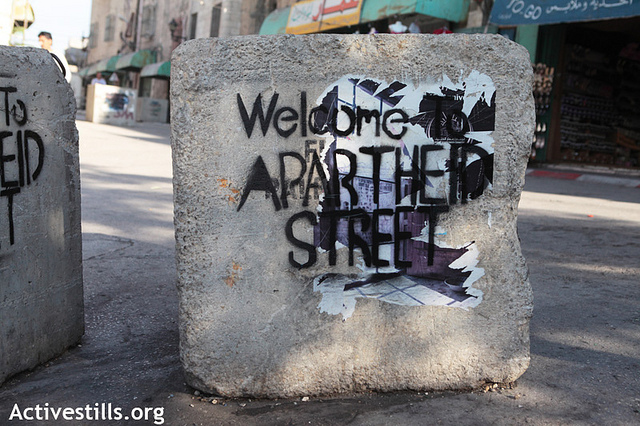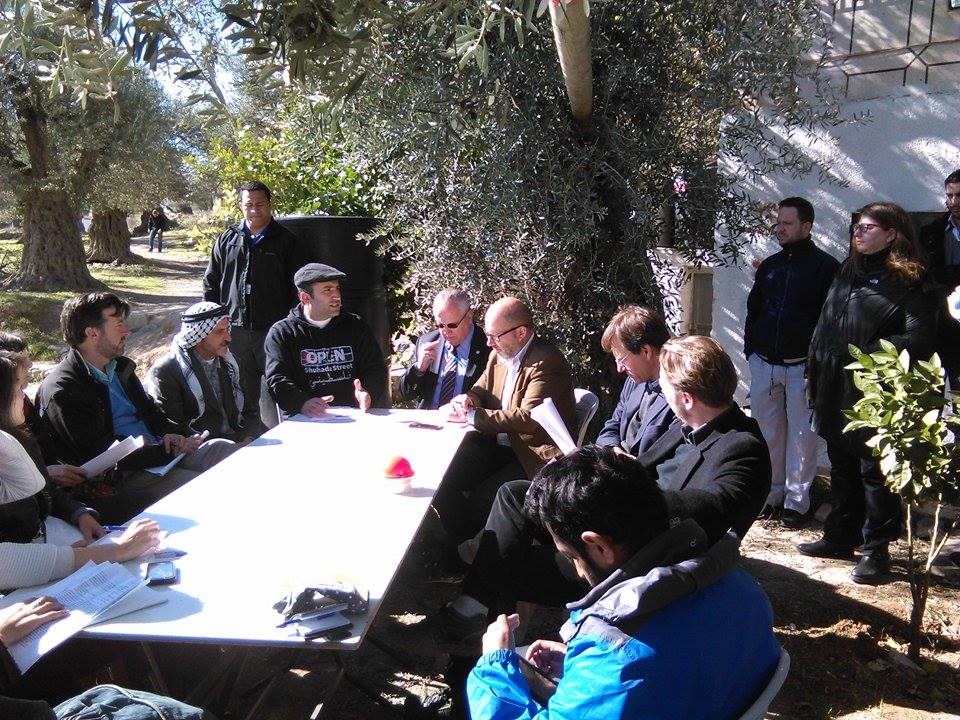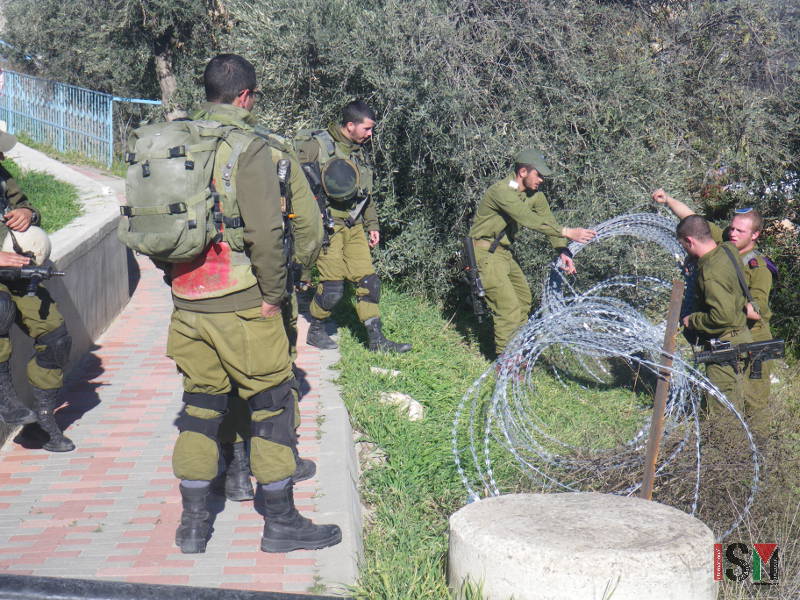Tag: Hebron
-
ACT NOW ! Put an end to the ‘Closed Military Zone’ in Tel Rumeida and Shuhada Street, Hebron
December 13th, 2015 | International Solidarity Movement | Action Alert The undersigned organisations are calling on the international community to take immediate action regarding the continuous closure of the Tel Rumeida neighborhood and the part of Shuhada Street that has remained accessible to Palestinian residents since the Ibrahimi mosque massacre in 1994, in occupied al-Khalil…
-
UN delegation visits H2-area of Hebron
December 12th, 2015 | International Solidarity Movement, al Khalil team | al Khalil, occupied Palestine On Tuesday, 8th December 2015, a delegation from the United Nations visited the H2 area of occupied al-Khalil (Hebron), ahead of the international Human Rights Day on 10th December. The UN-delegation visited the H2 area, under full Israeli control, to…
-
School children denied their right to education in Hebron
December 10th, 2015 | International Solidarity Movement, al Khalil team | al Khalil, occupied Palestine Today, on International Human Rights Day, school children as well as teachers were denied access to the Cordoba school in Al-Khalil (Hebron). The mixed primary school is located in the neighborhood of Tel Rumeida at the end of the small strip of…



